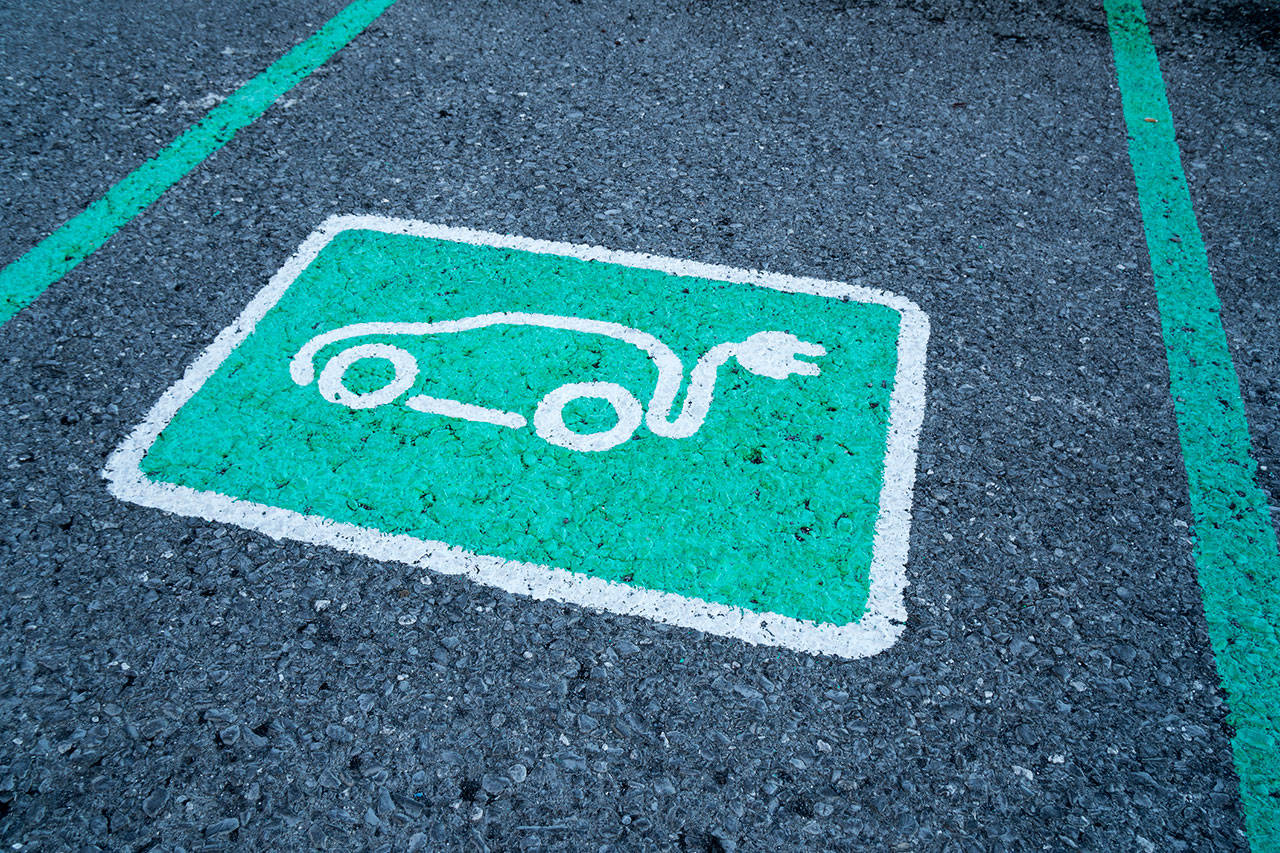By The Herald Editorial Board
Thanks to state law passed in 2007, nearly every vehicle driven by employees at Washington state agencies and local governments is now an electric vehicle.
The effect has been to remove tens of thousands of gas- and diesel-powered vehicles from state roads and highways, reducing air pollution that causes health problems and carbon emissions that contribute to climate change, while at the same time providing state and local taxpayers real savings over what would have been spent on vehicles running on fossil fuels.
Yeah, that didn’t happen.
In reality, state and local governments fell far short of that ambitious goal set a dozen years ago. As reported in June by Coltura — a Seattle-based nonprofit that advocates for the transition from fossil fuels to electric vehicles — a spot check of some 31 local governments, including the city of Everett and Snohomish County, found that less than 6 percent of those combined fleets used electric vehicles.
The state, itself, also fell well short: State agencies, which were to meet the same standard by 2015, had only 152 electric vehicles among the 7,191 at five agencies surveyed. The state Department of Enterprise Services, had the highest percentage of electrics, 142 such vehicles against the 1,291 gas-powered cars it operates.
Which is why it’s encouraging that some lawmakers have proposed taking the issue up again to recommit to the goal of operating state and local government fleets with as many electric vehicles as is feasible, allowing exceptions for police, fire and other public safety vehicles.
HB 1832 would require electric vehicles for state government fleets’ passenger and light-duty vehicles, beginning with model year 2023; and 2026 for heavy-duty vehicles. Local governments would have to make the switch by 2025 for passenger and light-duty and 2027 for heavy-duty. Until then, the Department of Enterprise Services would be tasked with developing a plan that would assess costs and savings for achieving fully electric fleets.
The benefits of operating electric fleets are real, just as they are for private vehicles. Even beyond the reduction of carbon emissions and other air pollutants, fleets of electric vehicles would represent significant cost savings for local and state governments in reduced energy and maintenance costs.
Those savings, noted in the Coltura’s June report, were shown in an assessment by the state Enterprise Services agency of its own fleet.
A comparison of a gas-powered Ford Focus SE to an all-electric Chevy Bolt showed that over the life of each vehicle and factoring in purchase price, taxes, cost of gasoline vs. electricity, maintenance and resale value, the Bolt was nearly $1,600 less costly than the Ford Focus. Factor in environmental costs — based on a Environmental Protection Agency formula that takes into account reduced risks to health and climate change — and the savings for each electric car over the gas-power vehicle was $2,600.
A hearing Wednesday before the House Committee on Government and Tribal Relations regarding the legislation, however, may have shown why the transition has been slow to non-existent so far.
Few appear to dispute the benefits, but many, including groups like the Association of Washington Cities, which represents the state’s municipalities, are opposing the bill because of the upfront costs in purchasing electric vehicles and building out the infrastructure of charging stations.
Proponents of the bill, such as Coltura and Carbon Washington, pointed out that some of those issues already are being addressed, such as the addition of a significant number of charging stations along Washington highways thanks to the state’s settlement with Volkswagen over its “clean diesel” deception. As far as concerns about the environmental impacts of ramping up production of the batteries and equipment necessary, those technologies continue to develop. And their ecological impacts still pale in comparison to those of fossil fuels, they noted.
But even a spokeswoman for the Department of Enterprise Services, as dedicated as it is to the transition, admitted that the agency doesn’t have the expertise to properly analyze costs, benefits and difficulties in implementation and said that assessment would be better made by an outside analyst and at an unknown cost.
The bill’s sponsor, Rep. Nicole Macri, D-Seattle, is right that the state and local governments ought to be the ones to lead this transition and to set a deadline — unlike the one set in 2007 — that actually holds governments to make that transition. And Macri acknowledged the challenges in costs and implementation.
“But if we are going to get serious about doing this,” Macri said at Wednesday’s hearing, “the Legislature needs to engage in a conversation in earnest about how we get there.”
A big part of that conversation will have to be how local governments — counties, cities, school districts and others — will be assisted with the upfront costs for vehicles and charging stations during the transition.
It’s unfortunate those conversations didn’t happen anytime in the last 12 years.
Talk to us
> Give us your news tips.
> Send us a letter to the editor.
> More Herald contact information.

























